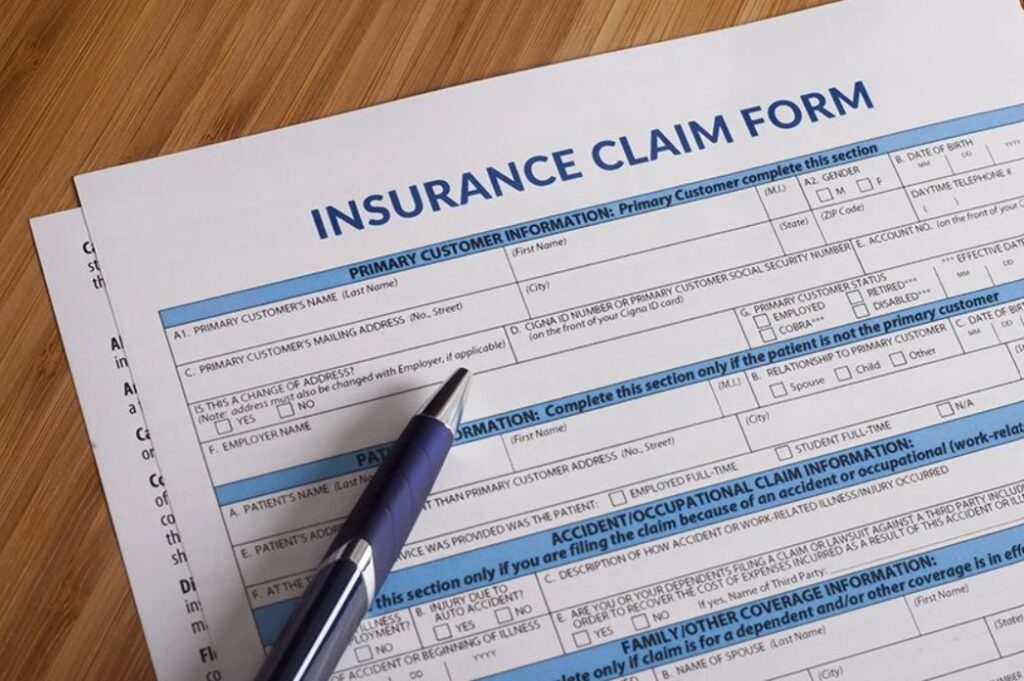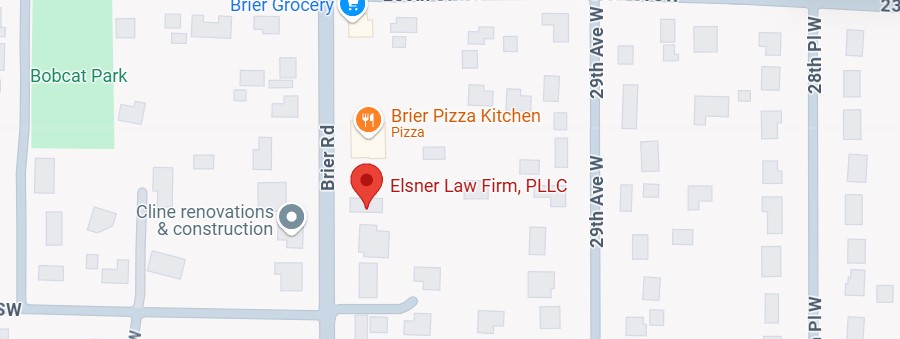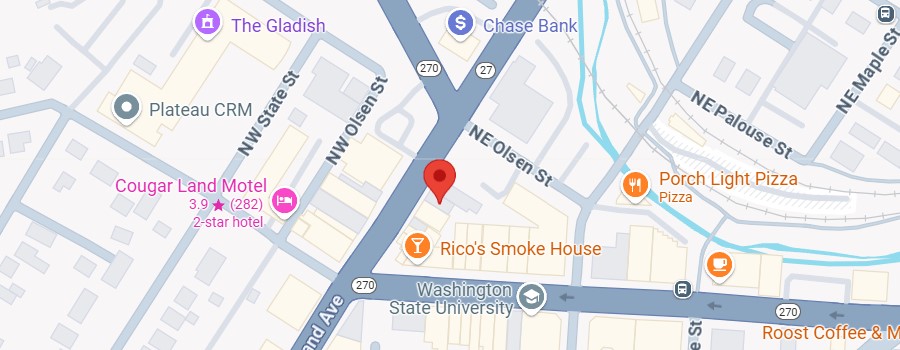Gun Culture Survey
In a comprehensive survey examining American attitudes toward gun culture and mass violence, 50.5% of respondents admitted that reports of mass shootings had pushed them to consider buying a gun for personal protection. This finding shows that violence not only destroys lives but also multiplies itself by creating demand for more weapons in a country already heavily armed.
The research, conducted with 400 Americans across the United States using Pollfish, reveals a society haunted by fear. Ordinary places such as schools, malls and workplaces are no longer viewed as safe. Instead, they are seen as potential danger zones. More than half of Americans now feel unsafe in public spaces and over seven in ten believe violent entertainment fuels real-world violence.
Why We Conducted This Study
Gun violence in the USA has been rising for years, but the recent assassination of political activist Charlie Kirk in a public place shocked the nation and reignited fear. The attack sparked a heated, country-wide debate on gun culture. News outlets and social media were filled with divided opinions on whether stricter laws or expanded rights were the answer.
The September 29 attack on the Grand Blanc church shooting in Michigan, where worshippers were killed during prayer, has further deepened the sense of insecurity. Many saw it as proof that not even sacred spaces are safe anymore.
This surge in public concern, along with the clash between calls for tighter control and demands for personal freedom, prompted us to conduct a nationwide survey. We aimed to understand how Americans view guns, safety, and the root causes of violence today.
Key Takeaways
# 50.5% of Americans say mass-shooting news pushed them to consider buying a gun, while 49.5% chose not to.
# 54.5% believe guns are mainly for personal safety, compared with merely 30.5% who say they use guns for hunting or sport.
# 51.5% feel unsafe in public places and shockingly, only 8.5% always feel safe.
# 31.8% blame extremist ideologies for gun violence in the U.S., more than mental-health gaps (25%) or easy firearm access (20.5%).
# 71.3% think violent games, movies, or music fuel shootings, and less than half of it, 28.7% see no link.
# 41.5% call for stricter gun laws, with smaller groups favoring bans for domestic offenders (17.5%) or community programs (13.5%).
# 71% demand stricter national gun laws, while 23% prefer no change and only 6% want them loosened.
Key Findings
More than 50% bought guns because of fear
Mass-shooting headlines are pushing many Americans toward firearms. About 50.5 % of respondents in our survey considered buying a gun in the past year. Slightly less than half, 49.50% considered not to buy guns for personal safety.
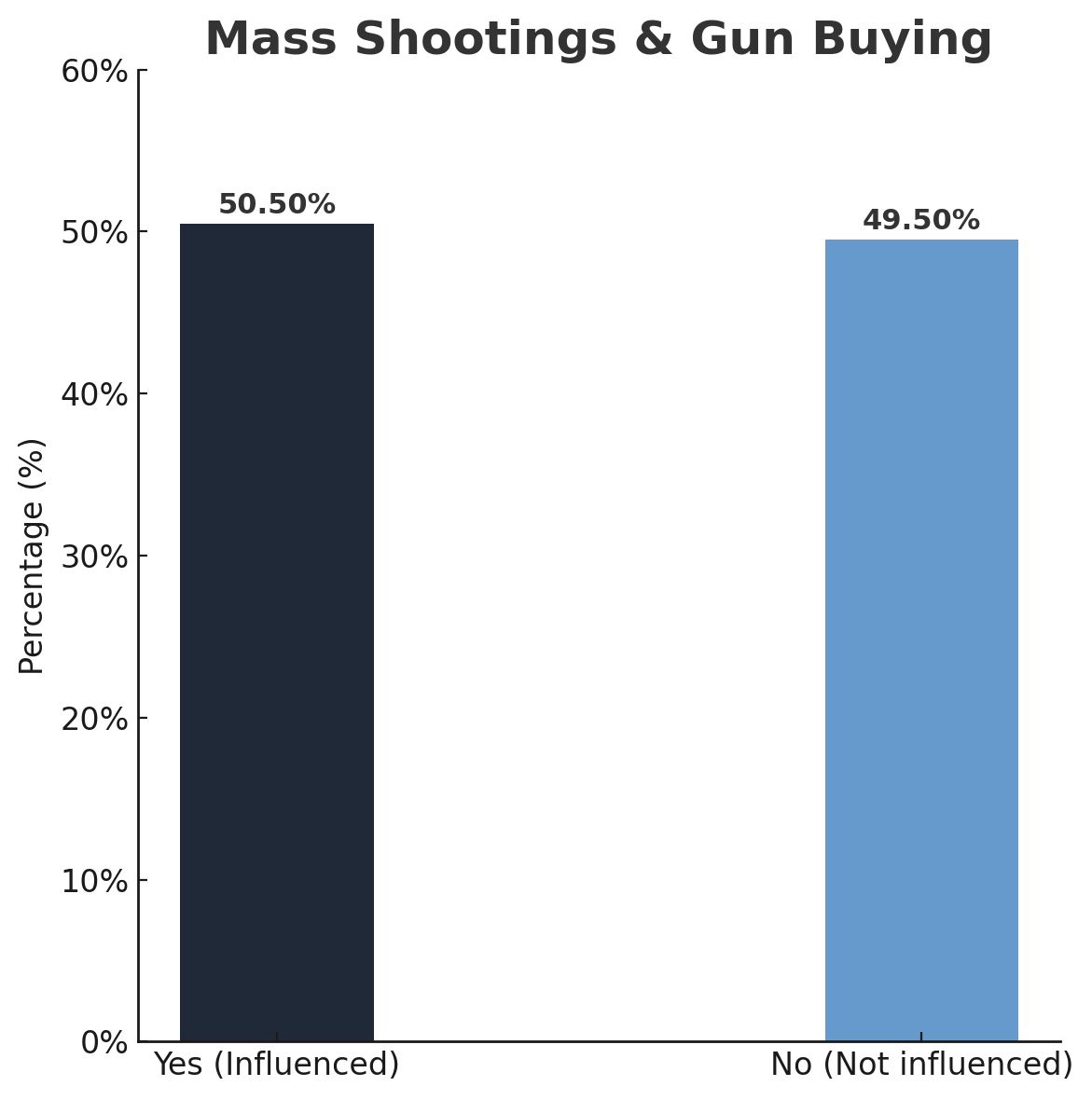
Interest was highest among adults 18–29 and people earning $40k–$80k a year. Respondents in the South and Midwest reported the strongest urge to purchase.
Several women mentioned personal-safety concerns in public spaces. These patterns show fear of random violence and just not sport or tradition which is driving many first-time buyers.
54.5 % See Guns Mainly for Personal Safety
More than 54 % of participants said guns matter mainly for personal safety, while only 30 % mentioned hunting or sport. Only 9.25% of individuals voted for having a gun as tradition and 5.75% of people selected community or cultural identity as the main role of guns in society.
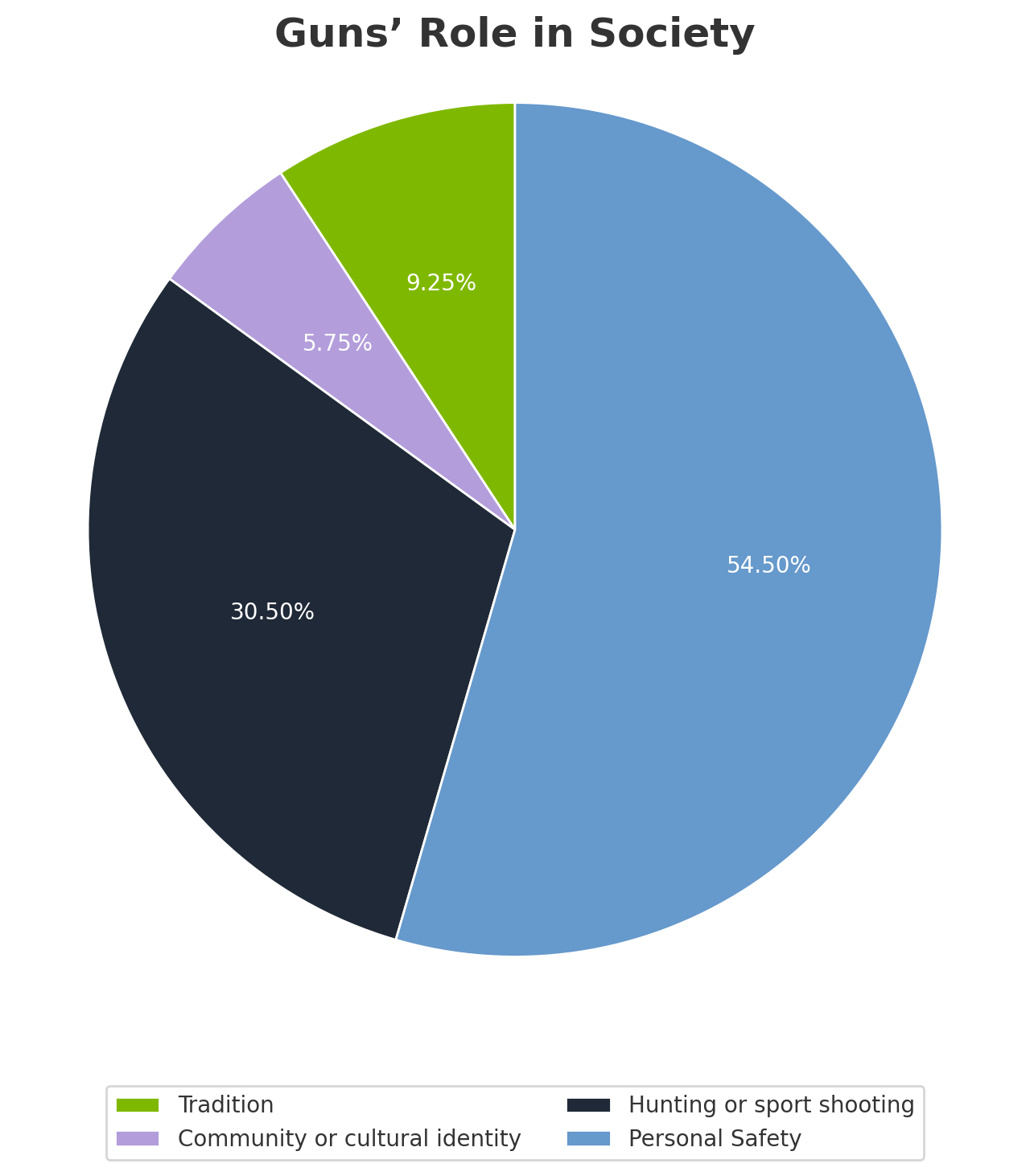
This view was strongest among women and urban residents, who often feel more exposed to crime. Households earning under $60k showed the greatest emphasis on protection.
Even in states with strong hunting traditions, such as Texas and Pennsylvania, safety was the most selected option in our survey question. The data reveal a shift now. Firearms are now seen as shields and not recreational tools!
Massive 51.5 % of general public feel unsafe in public spaces
Concerns about mass shootings significantly shape daily life in the U.S. More than 51% of people report feeling unsafe in public places like schools or malls, with 33.5% saying they sometimes feel unsafe and 12.5% saying they often do. Another 5% report, they always feel unsafe in such environments.
In contrast, only 8.5% of people say they always feel safe, while 40.5% generally feel safe in public places.
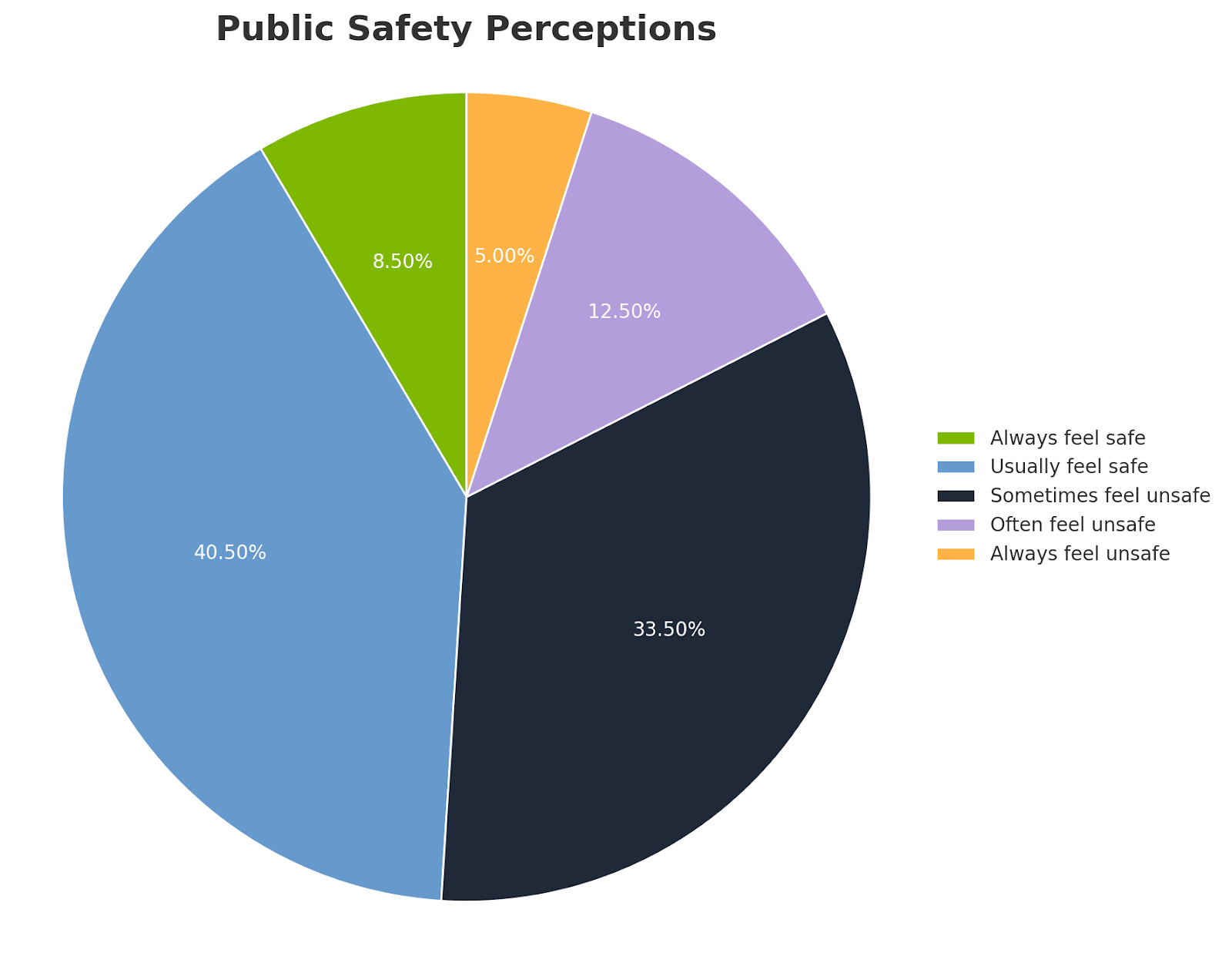
These concerns are not without reason. For example, in July 2025, a mass drive-by shooting in Chicago’s River North neighborhood left 4 people dead and 14 injured outside a nightclub during an evening event.
Younger adults and parents of school-age children reported the highest unease. Residents in large metropolitan areas, especially in the Northeast, were more likely to express fear.
Women consistently showed greater worry than men. These findings highlight a widespread sense of vulnerability that cuts across income and region.
31.8 % Blame Extremist Ideologies behind increased gun violence in the USA
About 31.8 % of respondents cited the spread of extremist or hate-fueled ideologies as the main cause of U.S. gun violence.
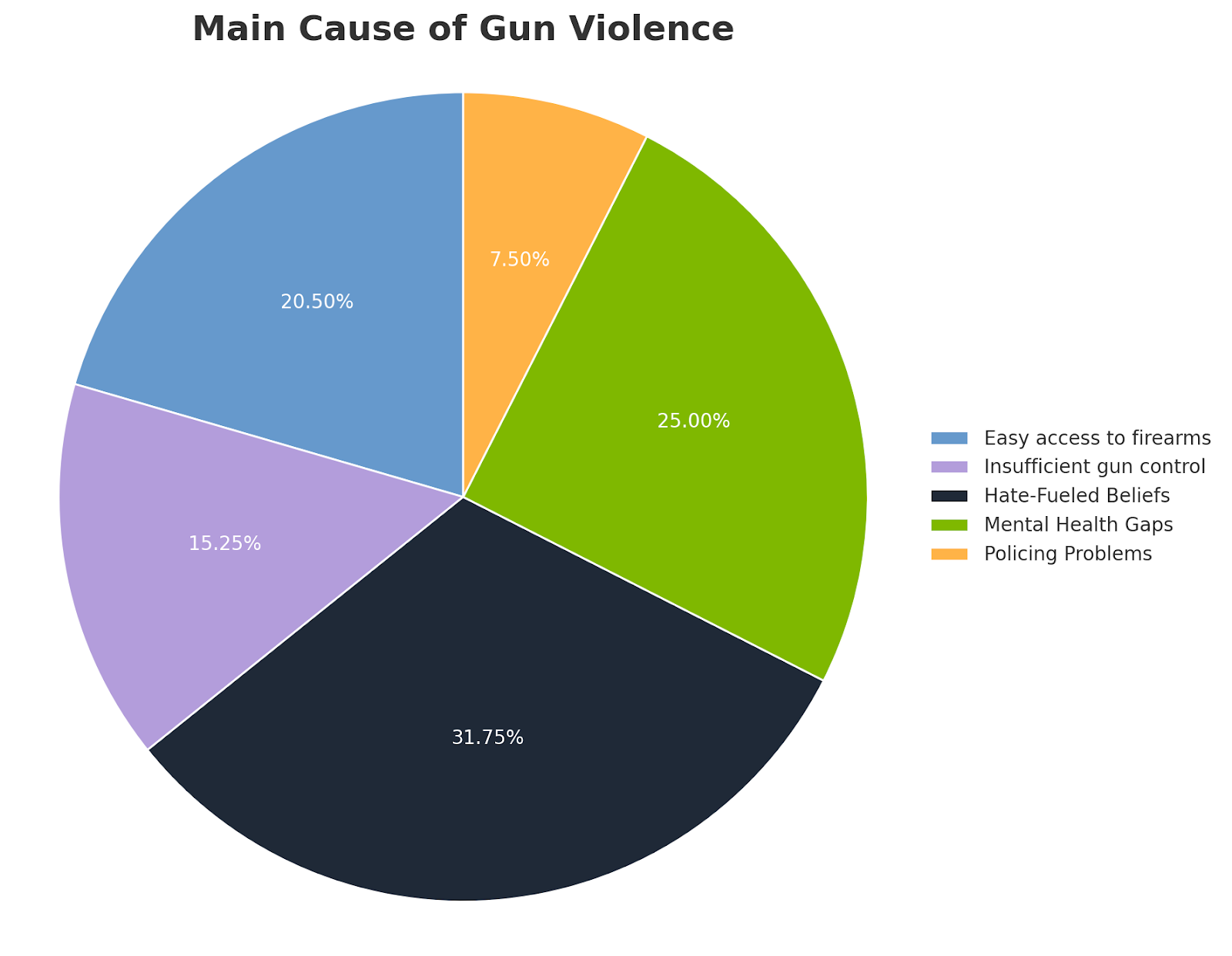
This view was strongest among Black and Hispanic participants. Many of them reported feeling directly targeted by hate crimes. Urban residents and those earning under $50k showed the highest concern.
In contrast, 20.5% blamed easy access to firearms, 25% pointed to gaps in mental health support. 15.25% said there is not enough gun control and 7.50% see flaws in policy making and criminal justice.
It highlights how many now see political extremism as a bigger cause of gun violence than these other issues.
More than 70% Link Violent Entertainment as major cause of mass shooting incidents
Almost half, 49.8 % of participants of our survey believe violent media entertainment such as games, movies, or music play at least a small role in mass shootings.
Among them, 21.5 % see a major influence, while 28.3 % dismiss any connection. Parents under 40 and suburban families were most likely to point at entertainment.
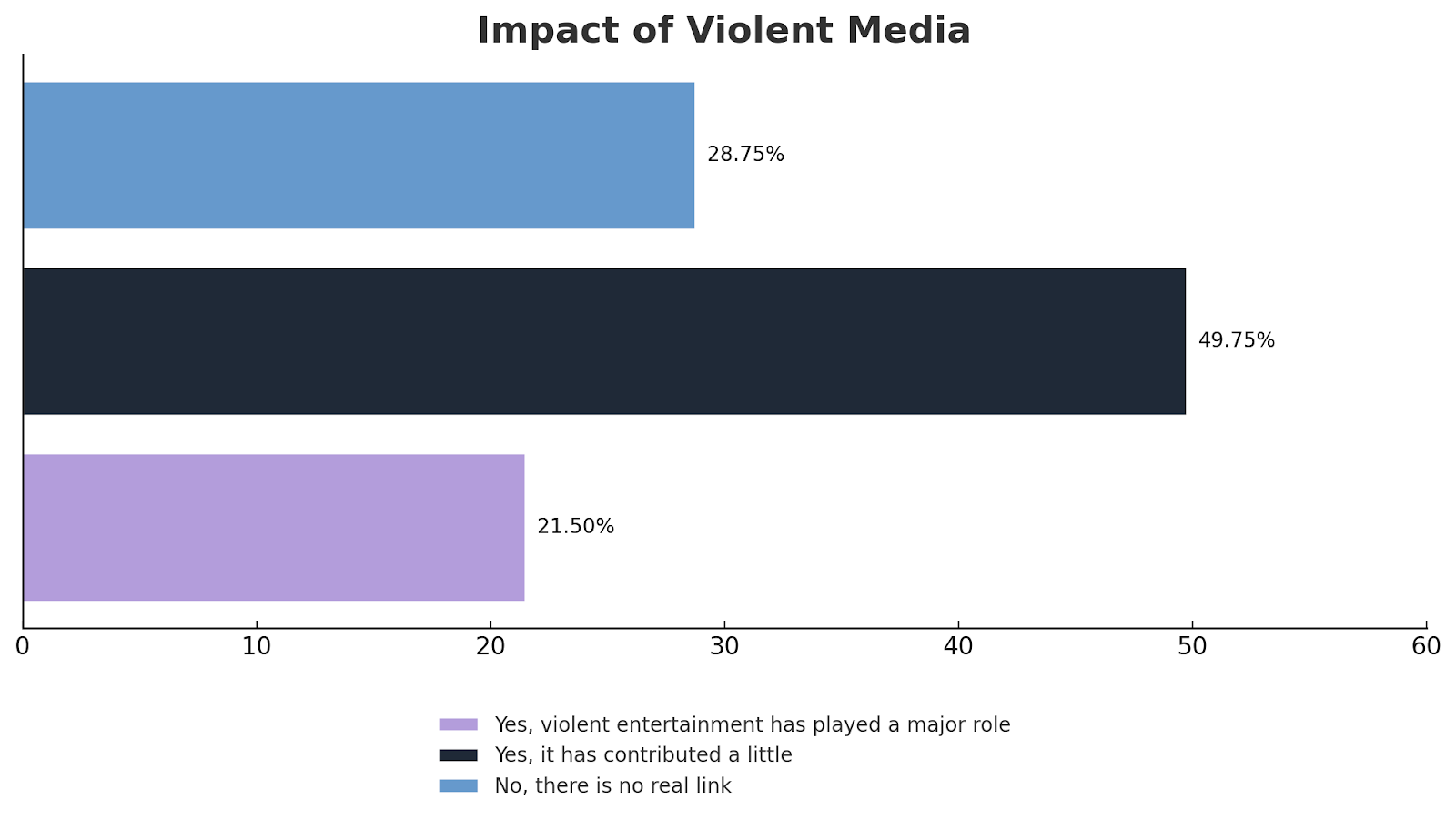
Older adults and higher-income groups were less convinced of this idea. The debate reflects ongoing concerns about how media violence might shape real-world behavior, even as research findings remain mixed.
You can clearly get an idea from a recent incident in September when Tyler Robinson, the suspect in the Charlie Kirk shooting, gave references to video games, internet memes, and pop-culture phrases on bullet casings. These inscriptions sparked debate about whether media and entertainment influence violent behavior.
41.6 % Americans favor the idea of tougher laws for having a gun
When asked how to reduce gun violence, 41.5% of Americans chose stricter gun laws as the most effective solution. Another 21.5% favored universal background checks, while 17.75% supported a ban on guns for domestic-violence offenders.
Smaller groups pointed to community intervention programs (13.25%) and safe-storage requirements (6%).
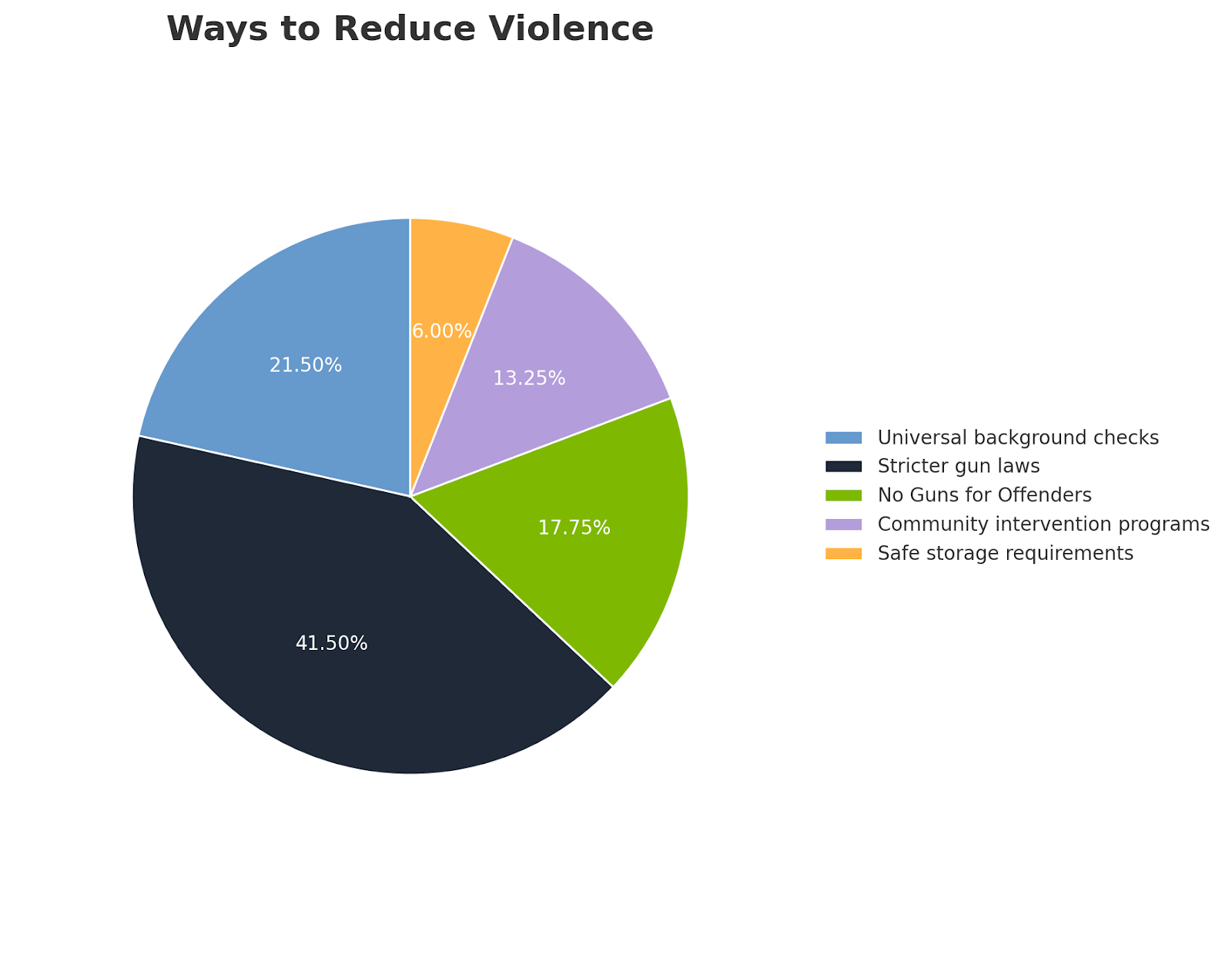
These numbers show a strong national lean toward tighter regulations over local programs or storage rules.
The debate gained fresh attention after the New Jersey appeals court decision on 10th of September, that upheld limits on carrying guns in parks and hospitals. It highlighted how public opinion and recent rulings both lean toward tighter regulations.
71 % Want Stricter U.S. Gun Laws Overall
71 % favored stricter gun laws as the single most effective step. In comparison, only 6% support loosening current gun laws, showing that very few people believe that making guns more accessible would help.
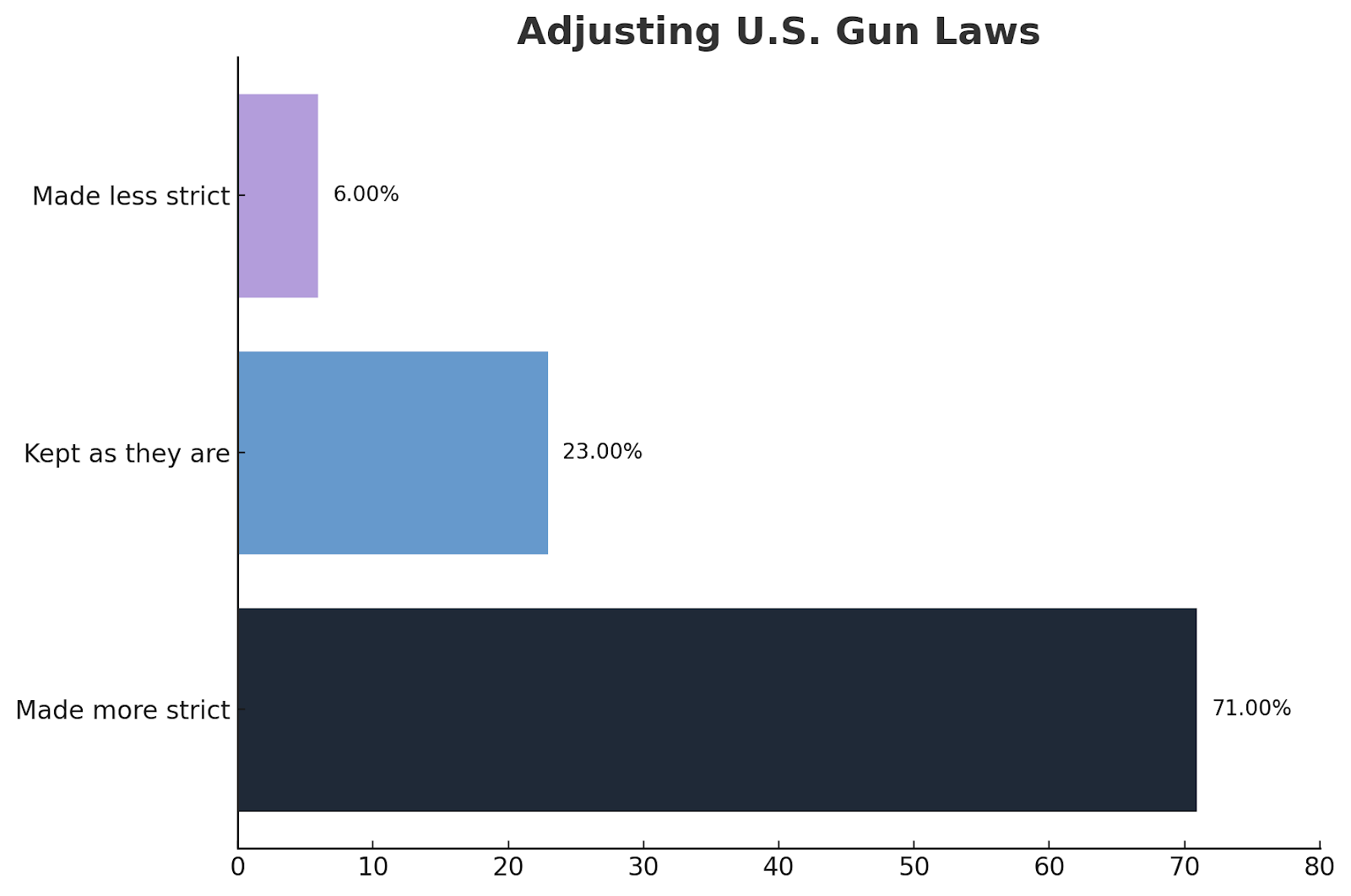
On the other hand, about 23% of U.S. citizens say they are satisfied with the current laws and do not want any changes at all.
This strong tilt toward tougher laws mirrors the broader finding that 71 % of respondents overall want U.S. gun laws tightened, showing widespread demand for meaningful legislative change.
Implications for U.S. Gun Policy and Safety
The survey shows some clear outcomes that leaders and communities should note:
- Push for New Laws: A strong 71 % want stricter gun rules, adding pressure on state and federal lawmakers. This follows actions like the Sept 2025 New Jersey court ruling that kept limits on guns in parks and hospitals.
- Public Fear is Rising: More than half feel unsafe in everyday places such as schools and malls. Local governments may face calls for more visible security and safety programs.
- More People May Buy Guns: About 50 % have thought about buying a gun after hearing of mass shootings. This could increase the number of private gun owners even while many want tighter rules.
- Deep Division on Causes: 31.8 % blame extremist groups while 25 % point to mental-health gaps, showing how opinions on the main cause of gun violence remain split.
- Media Debate Will Continue: Nearly half believe violent games or movies add to shootings, so pressure on the entertainment industry is likely to stay high.
Methodology
This survey collected 400 responses from adults across the United States through Pollfish.
- Age & Gender: Most participants were between 25 and 64 years old.
- Income: Household incomes ranged from under $5,000 to over $500,000, with the largest share earning $100k–$125k.
- Race & Ethnicity: People from all races and ethnicities in the US participated in the survey. However, the majority was of white people, followed by Black or African American and Hispanic respondents.
- Location: People from all 50 states took part. The South had the most responses, with strong representation from Florida and Texas. A major chunk of responses also came from New York.
Conclusion
Mass shootings no longer shock but terrify and divide the nation over how to stop them. This survey captures how Americans view guns and rising violence with respect to their safety.
It highlights strong concern about mass shootings and support for stricter laws and offers clear insight into public opinion and policy needs.
The findings suggest that public trust in current protections is fading. This is creating pressure on lawmakers and local leaders to find balanced solutions that reduce violence while respecting responsible ownership and individual rights.
